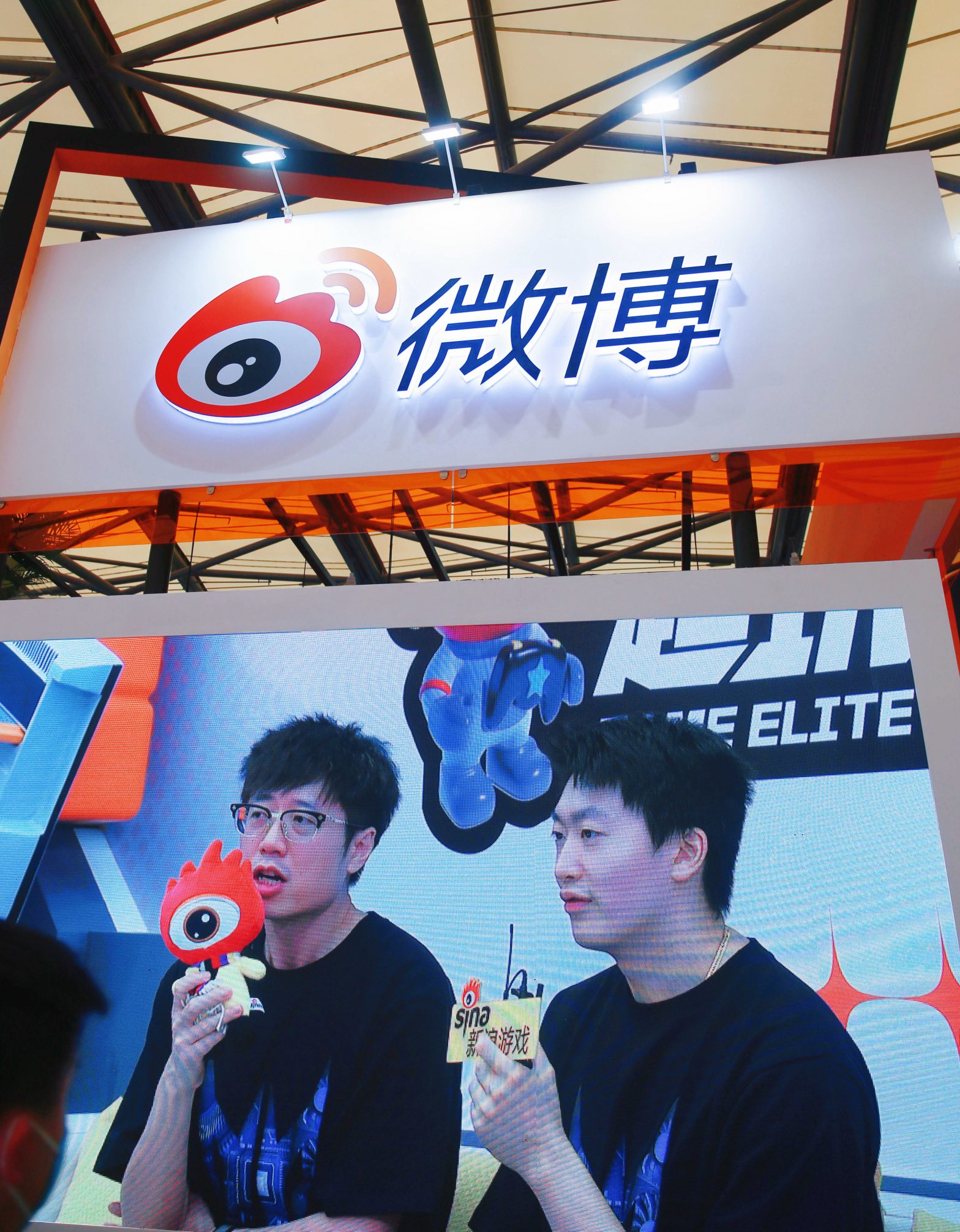Weibo booth at ChinaJoy Entertainment Expo in Shanghai, China, Aug. 1.
Costfoto | Barcroft Media | Getty Images
Hong Kong-listed shares of Weibo opened 6% lower in their trading debut on Wednesday.
Shares opened at 256.20 Hong Kong dollars ($32.85) a piece compared to an offer price of 272.80 Hong Kong dollars ($34.98). At one point, the price fell as low as 253.20 Hong Kong dollars.
It is a secondary listing for the Chinese social media giant, which raised approximately $385 million.
The main listing is on the Nasdaq in the U.S., where the stock rose 4.69% in the overnight session.
Weibo’s secondary listing comes as Chinese ride-hailing giant Didi last week said it will delist from the New York Stock Exchange, and make plans to list in Hong Kong.
Chinese regulators were reportedly unhappy with Didi’s decision to list in the U.S. without first resolving outstanding cybersecurity issues. Regulators told the firm’s executives to come up with a plan to delist from the U.S. due to concerns around data leakage, according to reports.
Didi is China’s largest ride-hailing app and owns a large volume of data on travel routes and users.
Weibo is the latest Chinese internet company to do a secondary listing in Hong Kong.
Others that have done so in recent years include search engine giant Baidu, e-commerce behemoth Alibaba, its rival JD.com as well as gaming firm NetEase.
China’s tech crackdown
South China Morning Post reported this week that China’s top policymaking body left antitrust out of its 2022 economic goals, and is instead focusing on technological development. Last year, policymakers had set tackling “disorderly expansion of capital” and monopolistic practices as key economic goals for 2021, and that foreshadowed the tech crackdown, the SCMP reported.
China’s efforts to regulate its big internet companies is expected to continue in the near term, according to Qi Wang, CEO of MegaTrust Investment (HK).
“Don’t get disillusioned that this is over. This will be happening for the next few years. It’s definitely not over. But, having said that, in the short term, I think the worst of the big tech crackdown might be over,” he told CNBC’s “Street Signs Asia” on Wednesday.
Policymakers will likely consider the impact of the new regulations on the broader Chinese economy, as well as give the tech firms time to comply with those rules, he added. “Having said that, if the companies still try to find loopholes, and try to go around [the rules], of course you can expect another crackdown.”
China’s market regulator last month fined companies including Alibaba, JD.com and Baidu for failing to declare 43 deals that date as far back as 2012 to authorities, Reuters reported.
— CNBC’s Weizhen Tan and Arjun Kharpal contributed to this report.
